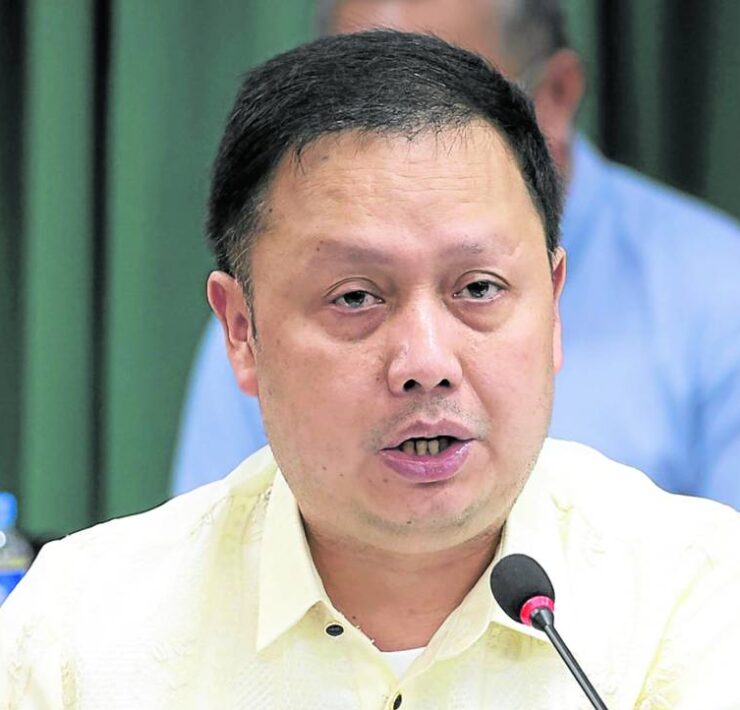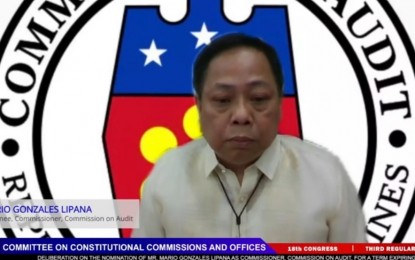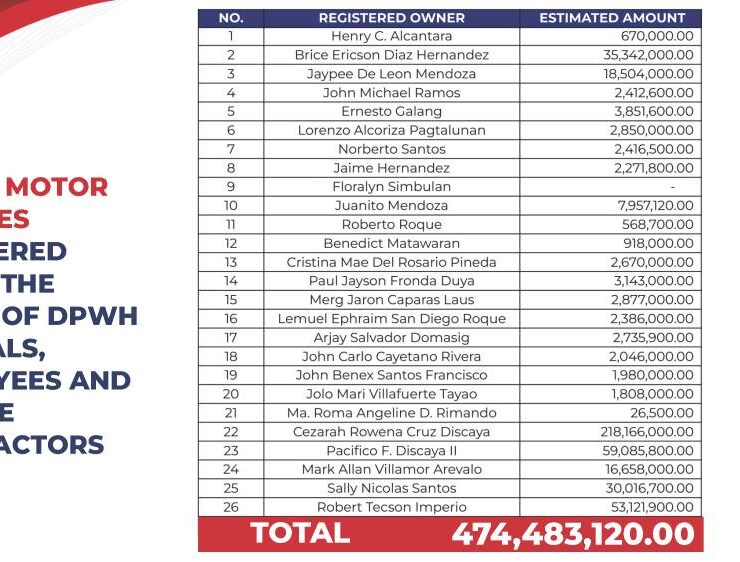Good, bad contractors

Lost in the current dynamics on the issue of the failed multibillion peso flood control projects is the distinction between legitimate and illegitimate infrastructure contractors. The so-called “good” contractors strictly follow their contracts and specified construction standards, while the “bad” contractors are out to earn fast buck, connive with their criminal partners in government to swindle the state of its public funds, and disappear from the scene the moment they have obtained the tons of money.
From all indications, the two kinds of contractors, although poles apart, are being lump together in a single category without any differentiation. It goes without saying, too, that good contractors are to suffer from the misdeeds of the bad contractors.
First premise: the Constitution says, “a public office is a public trust.” Hence, the government is tasked to protect public money (taxes, fees, and other revenues, which reach trillions of pesos annually) at all times and all costs. The government spends public money to promote the common good, which is its first goal.
Second premise: the government takes extra efforts to protect public funds by instituting strict measures for its use and expenditures. It conducts competitive biddings among builders, contractors, and service providers. Participants follow strict bidding rules especially for infrastructure expenditures, which involve big ticket projects for roads, bridges, flood control infrastructures, post-harvest facilities, among others.
Unscrupulous parties in the government and private sectors connive to defraud the government of its valuable public funds. They manipulate to make their misdeeds appear as legal as possible, escape prosecution, and disappear after they swindle the government.
As part of the standard operating procedures in the infrastructure construction projects, the government issues the bidding document sheets (BDS), which participating bidders fulfill to provide information about their participation and enable the state-led Bidding and Awards Committees (BACs) to determine their competence and capability to meet the requirements.
Because they want to stay long in the business of infrastructure construction, competent contractors usually follow what the BDS requires and the moment they win the bid, they follow the contract provisions. This is not all. Good contractors usually obtain certifications about their official competence and capability to pursue their projects in accordance with the specifications and standards in their contracts.
They usually follow the rules and are extremely aware they have to be certified compliant to the standards set by the International Organization for Safety (ISO), an international civil society organization that accredits compliance to global standards for safety and quality control.
It is not easy to get ISO certification, as applicant-parties have to submit voluminous documents to prove compliance to global standards. An ISO certification is needed to obtain state contracts because it shows that a participating bidder is meeting the benchmark set for its management systems, its processes, and its sustainability to follow the requirements. It also shows a firm commitment to maintain quality, efficiency, and adaptability for changes.
Unscrupulous or bad contractors are usually present for the short haul. They win the bid through unscrupulous means, get the money, and run away. They take extra efforts not to improve but to cover their tracks. They are happy to strike once but would not hesitate to take two or three more strikes, when the opportunity arises. Then, like the proverbial thieves in the night, they disappear from the scene.
This is a common occurrence among fly-by-night contractors. They are not legitimate, as they resort to malpractices to obtain state contracts. In the current controversy on flood control projects, the government was defrauded of billions of pesos of state funds by the manipulative practices of illegitimate contractors.
They connive with equally unscrupulous lawmakers to obtain items in the national budget, or perform fund insertions in the national budget, and connive with unscrupulous public servants in the line agencies like the Department of Public Works and Highways, among others.
In some instances, illegal contractors had used the license of the legitimate contractors, but they disappeared when they obtained the money. In other instances, they did not pursue the projects, making them “ghost projects.” There are many ways to defraud the government because it constitutes the biggest source of money to obtain illegally.
It takes political will to stop and neutralize the unscrupulous elements—from the contractors to the conniving lawmakers, and officials of line agencies.
—————-
Philip M. Lustre Jr. is a veteran journalist and book writer with over four decades of experience in writing topics on politics, the economy, international relations, environment, among others.





















When plastic treaty fails, can citizens fill the gap?